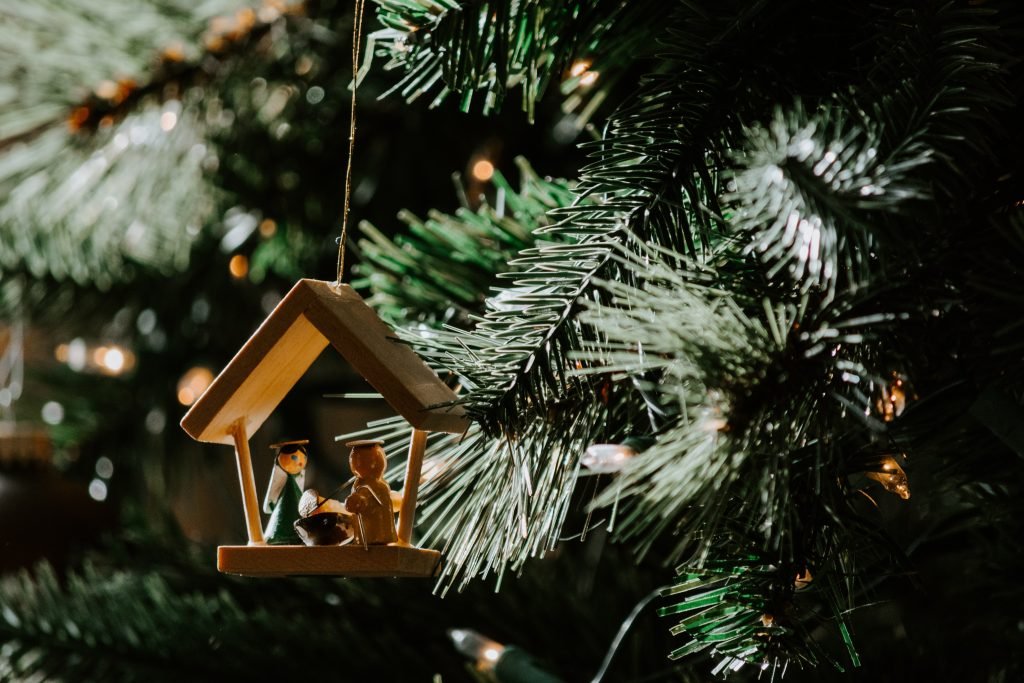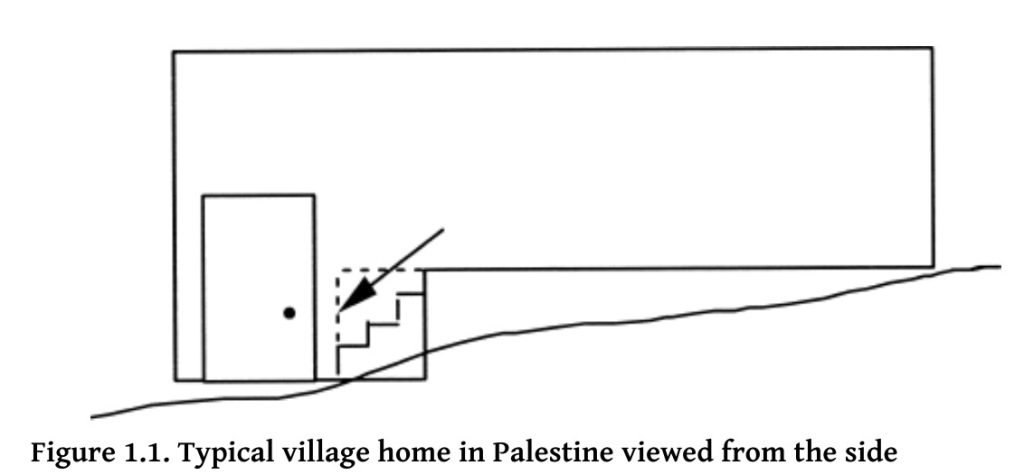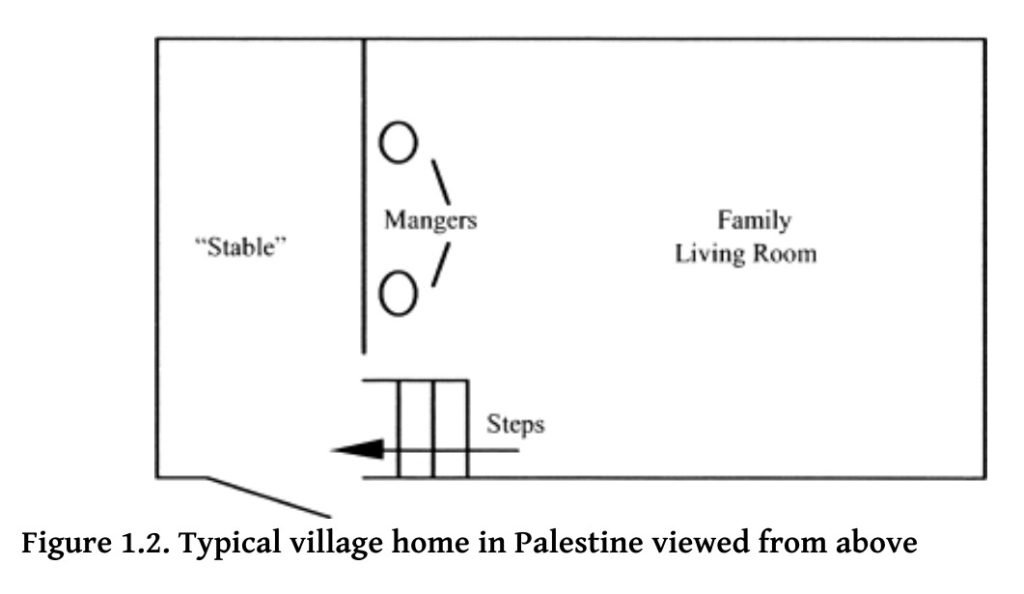As the title suggests, this week Luke steals Christmas. This is rather odd because most of us assume that our understanding of the Christmas story comes out of Luke. You know, Mary and Joseph arriving in Bethlehem as Jesus is about to be born. The local inn is already full, prompting the owner to turn them away. Nobody helps them until some soul sends them off to a barn-like cave filled with smelly animals. All of that is part of our romanticized idea of Christmas. It is also not what Luke says.

Hospitality as a Way of Life
The typical reading of Luke demonstrates a complete failure to understand Semitic culture. Ancient Israel was a culture of hospitality. To not provide shelter to any traveler, let alone one whose family descends from the region, would disgrace an entire village. As a descendent of David, every door in Bethlehem was open to Joseph. There was no excuse capable of legitimizing the decision to turn their backs on the family.
In the end, if their present accommodations were not suitable, the shepherds themselves would have taken the holy family into their own homes.
So how should we understand the manger and the inn? Where were Mary and Joseph when Jesus was born?
Home Construction in the Ancient Near East
To understand what Luke, we need to understand the layout of people’s homes in ancient Israel.
Most families lived in one room that had two levels or one divided into two sections. The larger main room was where the family would cook, eat, and sleep. The second, slightly lower level, provided a space to keep animals during the night.

Having the animals indoors and nearby was essential both for the animals’ safety as well as the heat they generated to warm the home on cool evenings. When you came in the front door, you came in on the lower level. So every morning, someone in the family took the animals out the front door to a pen. Once out of the house, someone swept their waste from the night out the front door.
Attached to this room was a second room either out the back or on the roof. The word for this room is the one modern English translate inn. At another place in Luke, it is the upper room where Jesus had the Passover dinner with his disciples before Judas betrayed him.
In a culture of hospitality, when the guest room is full and there is no room in the “inn,” where does a late-arriving family stay? The main family room featuring a manger or two, just in case the animals want a late-night snack.

What Does Luke Say About Christmas?
There is something beautiful and even magical about our popular understanding of Christmas. The rugged individualism of the holy family appeals to our American sensibilities. I imagine it also feeds the conservative conception of a war on Christmas, after all, it paints an unwelcome and unwanted Jesus, now projected onto his followers who want the same good for the world.
Luke undermines all of that. After all, we have the holy family not just staying in the guest house, but in the main home. Mary does not give birth in isolation, but women from the village are there as midwives. The shepherds, rather than being the only guests, join the extended family in the celebration of the child’s birth. In other words, outside of the arrival of the shepherds, everything about this birth appears shockingly normal.
And yet, throughout the early verses of Luke, it is clear that this child is special. The angel Gabriel announces his miraculous conception to a young woman engaged to a descendant of King David. Gabriel describes Jesus as the “Son of the Most High” and the one who will sit upon David’s throne, where he will reign over Israel forever.
This is the contrast that Luke invites us to sit with.
Luke’s Christmas is One of Contradiction
Luke opens with a chapter filled with magic and mystery. First, you have the barren Elizabeth getting pregnant in her old age. For any ancient Jew, it would stir up memories of the birth of historic figures the patriarch Isaac and the prophet Samuel. Then, at the opposite end of the spectrum, you have a young virgin who magically conceives and the prophecy of the prophet Isaiah begins to stir. The appearance of Gabriel to both women makes it clear that God is up to something and that something is the promised king. How could this not overwhelm a reader with eagerness and anticipation of what is to come?
Then comes the first seven verses of Luke chapter 2.
It is an abrupt shift. We go from pageantry, poetry, angelic appearances, and the promise of a new king to a census mandate from Caesar’s throne. It is a harsh reminder that there is already a king whose coinage identifies him as the Son of God. Moreover, this king commands that the central figures of Luke 1 go, and they go. It makes you wonder who is really in charge.
The family of the supposed King of Kings obeys this mandate from on high before coming into the world in the most mundane of circumstances. A small village whose most significant figure left town to make his home in nearby Jerusalem. The people there are poor. They make their living day-to-day and week-to-week, with every new mouth to feed a blessing but also a potential drain on precious resources. There is nothing kingly about this king’s arrival.
Then, just as we begin to question and doubt, the angel appears to the shepherds (and us) to remind us that this birth is kingly. That the contradiction of expectation is not the negation of the promise but a challenge to how we see the world.
Jesus is not the king of power. He is the king of love who dwells with the lowly, and until we can take our place among the lowly, we will never accept him for who he is.
Further Exploration
Book: Jesus Through Middle Eastern Eyes: Cultural Studies in the Gospels by Kenneth Bailey
Both of the pictures of an ancient Jewish home come from this book, as well as the cultural realities that make our popular interpretations of Luke incorrect.
Book: The Cross and the Lynching Tree by James Cone
While it is in no way a Christmas book, Cones work invites us to step into the world of those historically deemed lowly by our society. In doing so, he invites us to rethink ourselves and the faith we embrace.
Action
How can you simplify your Christmas and make it an invitation to take your place among the lowly?
Next Week
We have covered Matthew and Luke, so next week we will look at John’s take on Christmas.